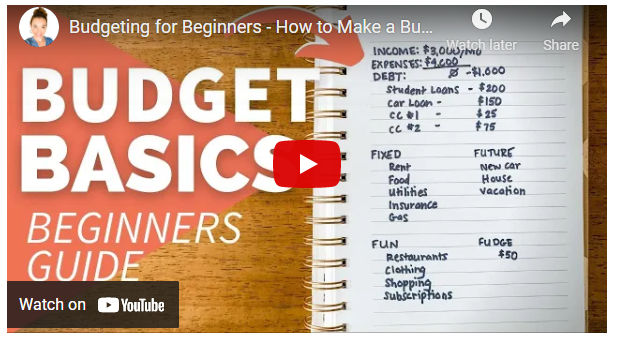Managing your money and finances can be difficult for anyone, especially if you are a beginner. Taking the time to manage your money better can really pay off and will prevent you from spending money unnecessarily. It can also help you to stay on top of all of your bills and pay off any debt that you may have. If you are looking to manage your money more efficiently, then here is a beginner’s guide to managing your money.
Create a Budget
The best way to manage your money more efficiently is by creating a budget for yourself. Setting yourself a budget is a great way to see where you are spending the most money and where you can afford to cut back. If you are unsure of how to create a budget you could look for help from an accountant if you have complex investments or a business. Otherwise, an easy way to create a budget is to start by writing out all of the things you spend money on in a month. Writing all of these expenses out will allow you to see exactly how much you spend and where you can cut back.
Get Everyone Involved
Managing your money can be a time-consuming and difficult task for some, so to help make the process easier you should seek the help of your family. Everyone needs to be on board if you want to make your budget work. Creating a budget together as a family will help make managing your money easier. It will also allow other members of your family to see where they need to cut back on spending money.
Hire an Accountant?
When it comes to managing your money more efficiently, you may want to get professional help if you have a business or you have a significant amount of money such as an inheritance. Hiring a local accountant to manage your money could be expensive and is usually unnecessary if you are just starting out. If you have difficulty managing your money and sticking to a budget you might consider getting a bookkeeper’s assistance to help you get started. They will be less expensive than an accountant but again are usually only necessary for a business. These days there are quite a few budgeting apps available that will help you track your expenses, so you probably won’t need a professional’s help to set up your budget. Once you get a handle on your budget you might want the assistance of a financial planner to help you prepare for future expenses. Getting the help of a professional is a great way to help you understand your spending and expenses, helping you to manage them more efficiently. See: The Difference Between an Accountant and a Bookkeeper.
Be Flexible
We all know that life can be unpredictable and unexpected costs can jump out of nowhere, for example, car repairs or a broken water heater. Unexpected costs by definition are random and don’t come on a set schedule, but they aren’t truly unexpected. You do know that eventually everything breaks, tires don’t last forever we need to have room for them in our budgets, so you have flexibility when it comes to managing your money. Being flexible requires putting some money aside just in case these unexpected costs show up. If they don’t show up this month roll that money over to next month and add a little money to it each month. So when one of these irregular expenses does occur it isn’t an emergency but simply an inconvenience.
As you can see there are a number of different things that you can do to manage your money better. So, if you are a beginner make sure to follow these few simple steps and you will be sure to manage your money more efficiently.
You might also like:
- How to Bless Your Family with Financial Security
- Money in Your Twenties: 5 Reasons You Need a Financial Planner
- 4 Benefits of Working with an Advisor for Your Personal Finances
- How to Figure Out How Much House You Can Afford
- 7 Benefits of Downsizing to a Smaller Home
- 4 Ways to Cut Unnecessary Costs


